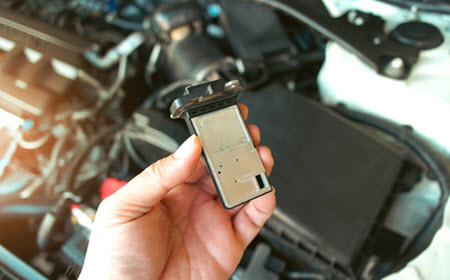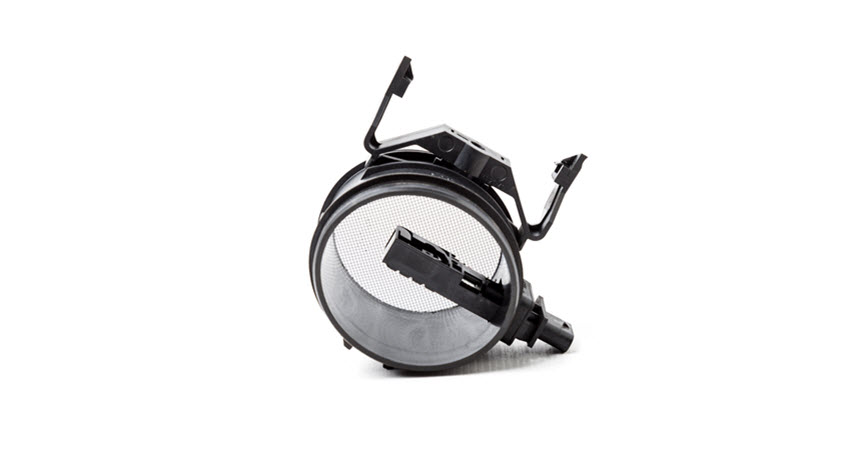Within the intricate web of components that make up a modern automobile, the mass airflow sensor (MAF) stands as a pivotal player, especially in the context of cars bearing the esteemed Volkswagen badge. It’s a diminutive device with a big responsibility: ensuring the engine operates with the precision of a Swiss watch. However, even the most reliable parts are not immune to issues.
Understanding the Mass Airflow Sensor
The mass airflow sensor, or MAF, holds a pivotal role in the intricately orchestrated symphony that is your Volkswagen’s engine management system. Its fundamental task is to measure the volume and density of air entering the engine. This seemingly mundane data, however, is the lifeblood of the engine control unit (ECU), which utilizes it to calculate the precise air-to-fuel ratio for combustion. In simpler terms, the MAF sensor ensures that your engine performs efficiently by providing the right mix of air and fuel, minimizing emissions, and optimizing power output.
Realizing the Risks of MAF Sensor Failure
Let’s cut to the chase and examine the stark risks that arise when the MAF sensor encounters malfunctions. When this seemingly unassuming sensor goes awry, it sets off a domino effect of problems. These issues encompass diminished fuel efficiency, compromised engine performance, heightened emissions, and the dreaded engine stalling. The ramifications of ignoring MAF sensor problems can be financially draining, translating into extensive repair bills and a maddeningly frustrating driving experience.
The Bounty of Benefits from a Healthy MAF Sensor
Preserving the well-being of your MAF sensor isn’t a mere chore; it’s a strategic move. A properly functioning MAF sensor bestows upon you a wealth of advantages. Foremost, it guarantees that your Volkswagen operates at the zenith of its capabilities, delivering the expected power and fuel efficiency. Simultaneously, it plays a vital role in reducing the environmental footprint of your car, contributing to a cleaner, greener world. Moreover, a well-maintained MAF sensor translates into tangible fuel savings, making your visits to the pump less frequent and less financially burdensome.
How to Unearth MAF Sensor Issues
Recognizing the telltale signs of MAF sensor issues is the key to a timely remedy. If you notice symptoms such as sluggish acceleration, rough idling, or an ominous check engine light, your MAF sensor could be at fault. To diagnose the problem accurately, you’ll require a diagnostic scan tool to extract trouble codes from your car’s computer. Additionally, a visual inspection of the MAF sensor for any dirt, damage, or contamination is a prudent step.
The Culprits Behind MAF Sensor Failure
Understanding the root causes of MAF sensor failure is crucial for preventative measures. Common culprits behind this failure include:
- Intrusive Particles: The MAF sensor is remarkably sensitive, making it susceptible to the accumulation of particles such as dirt and dust on its delicate components, leading to skewed readings and performance issues.
- Natural Wear and Tear: Like all components, the MAF sensor undergoes wear and tear over time, which can result in inaccurate readings and deteriorating performance.
- Electrical Gremlins: Wiring and connector problems can disrupt the sensor’s electrical signal, causing it to malfunction.
- Oil Contamination: Some Volkswagen models are predisposed to oil contamination, which can compromise the MAF sensor’s performance significantly.
Rectifying MAF Sensor Issues
Should you discover a faulty MAF sensor, don’t despair; there are avenues for rectification. Here are the steps to mitigate MAF sensor issues:
- Thorough Cleaning: In many instances, a simple cleaning of the MAF sensor can breathe new life into it. Use a specialized MAF sensor cleaner and follow the manufacturer’s guidelines for the best results.
- Replacement: If cleaning doesn’t yield positive results or the sensor is irreparably damaged, the most prudent course of action is replacement. Ensure that you obtain a quality OEM or aftermarket replacement part for optimal performance.
- Wiring Scrutiny: Examine the sensor’s wiring and connectors for damage or loose connections, as these can be prime culprits for malfunction. Repair or replace damaged components as required.
- Addressing Oil Contamination: If oil contamination is the villain in your MAF sensor saga, it’s imperative to address the underlying issue causing the oil ingress. Afterward, clean or replace the sensor to restore functionality.
Reach Out to Us for MAF Sensor Assistance
In the grand scheme of your Volkswagen’s  well-being, the mass airflow sensor holds a pivotal role. Its proper function is the linchpin for performance, efficiency, and emissions control. Understanding the risks, rewards, and potential pitfalls of MAF sensor failure is the first step in responsible car ownership.
well-being, the mass airflow sensor holds a pivotal role. Its proper function is the linchpin for performance, efficiency, and emissions control. Understanding the risks, rewards, and potential pitfalls of MAF sensor failure is the first step in responsible car ownership.
Should you find yourself grappling with MAF sensor issues or facing any other automotive conundrums, we extend our hand of expertise at Fast Lane European in San Jose, CA. Our seasoned technicians stand at the ready to diagnose, repair, or replace your MAF sensor, restoring your Volkswagen to its full splendor.
 Mon – Fri: 8:30 AM – 5:30 PM
Mon – Fri: 8:30 AM – 5:30 PM 3585 Stevens Creek Blvd, San Jose, CA 95117
3585 Stevens Creek Blvd, San Jose, CA 95117 (408) 985-2000
(408) 985-2000 (408) 985-1000
(408) 985-1000





 Make An Appointment
Make An Appointment